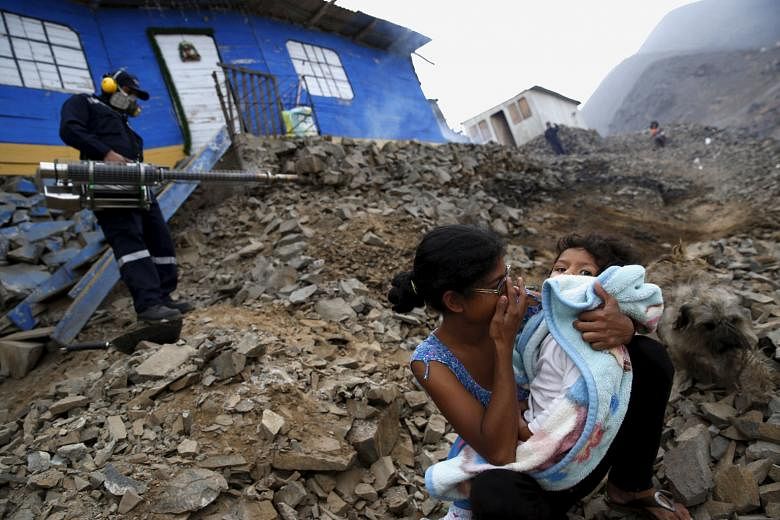GENEVA • The World Health Organisation (WHO) has declared the mosquito-borne Zika virus an international public health emergency as it gears up to combat the microcephaly outbreak in Latin America linked to the virus, which it fears could spread to Asia and Africa with "the highest birth rates in the world".
The emergency declaration came as Australia confirmed its first cases of the virus this year and Thailand reported its second.
WHO chief Margaret Chan told reporters that coordinated global action was needed to improve detection and expedite work on a vaccine and better diagnostics for Zika, but said curbs on travel or trade were not necessary.
Dr Chan, whose agency was criticised as too slow in reacting to West Africa's Ebola epidemic that killed more than 10,000 people in the past two years, cited "first and foremost the big concern about microcephaly", the birth defect that causes babies to be born with abnormally small heads and improperly developed brains. She noted that it was "strongly suspected but not yet scientifically proven" that Zika causes microcephaly.
Brazil has reported some 3,700 suspected cases of microcephaly.
"Can you imagine if we do not do all this work now, and wait until the scientific evidence comes out?" she told reporters at the WHO headquarters in Geneva on Monday.
In Australia, two Sydney residents were diagnosed with the Zika virus last Friday after returning from Haiti. The couple had mild cases of the virus and had recovered, the New South Wales Health Department said yesterday.
Thailand, the worst-hit country in South-east Asia, yesterday said a 22-year-old man infected with the Zika virus on Jan 24 had recovered after he was treated.
The WHO's emergency declaration, recommended by a committee of independent experts that met on Monday following criticism of a hesitant response to Zika so far, should help fast-track international action and research priorities. The move lends official urgency to research funding and other steps to stem the spread of the virus.
The WHO said last week that the Zika virus was "spreading explosively" and could infect as many as four million people in the Americas. The Pan American Health Organisation says Zika has spread in 24 nations and territories in the Americas.
This marks the fourth time the WHO has declared a global health emergency since such procedures were put in place in 2007, with the others arising from influenza, Ebola and polio.
Brazil is due to host the Olympics in Rio de Janeiro in August, but the government has ruled out any risk of cancelling the Games due to Zika.
REUTERS

